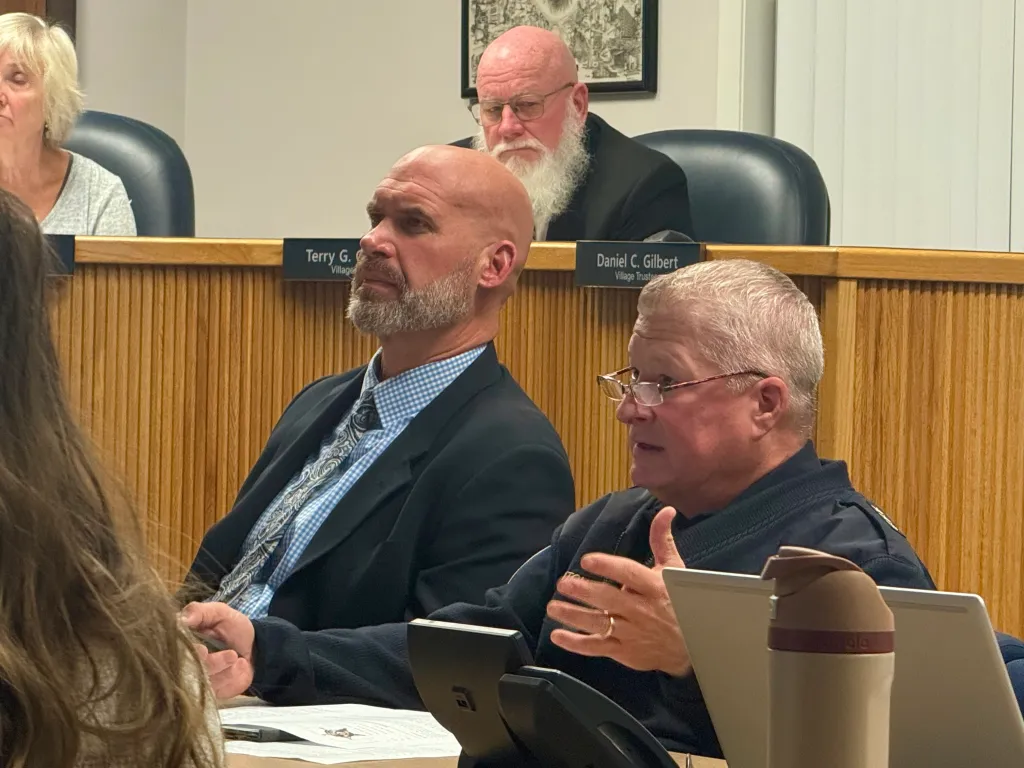Copyright Chicago Tribune

The Mokena Village Board passed ordinances Monday to regulate electric vehicles and scooters to increase pedestrian safety and increase the sales tax by a half cent to 8% Monday night. The village approved four new rules governing electric vehicles proposed by police Chief Brian Benton, who warned the safety restrictions were needed before the holidays, when he said there is an uptick in electric scooter and bike purchases. He also said the winter months are a good time to educate the public before the warmer spring months, when the village sees an increase in electric vehicle use. These ordinances will take effect in the next 30 days, Benton said. The ordinance only allows residents ages 16 and under to ride class one and two electric bikes without parent supervision. A class one bike only provides motor assistance when pedaling and does not exceed 20 mph, and a class two bike includes a throttle assist where the motor can be used to propel the bike without using the pedals. Individuals 16 and older can use class three bikes under the ordinance and state law. A class three bike is the same as a class one bike, so a motor only provides assistance when pedaling, but the bike can reach up to 28 mph. Driver’s licenses area not required for any class of these bikes under the ordinance, and Benton said electric bike riders must follow all bicycle rules such as having headlights and safety reflectors. The ordinance also brings local rule into compliance with state law, which requires electric scooter riders to have a driver’s license and be 18 or older. These scooters can be driven on streets up to 30 mph. Tinley Park has similar rules governing e-scooters, but other suburbs like Orland Park, New Lenox and Frankfurt do not allow them. Benton said an exemption in the ordinance allows children to use small scooters intended to be toys. The ordinance will also allow golf carts on residential streets with speed limits of 25 mph or lower. The driver is required to have a valid license with insurance. These carts will not be allowed to go in business districts except to cross streets and will be required to have safety components such as lights, signals, mirror, seatbelts and an safety reflector emblem. Golf carts are permitted in nearby suburbs such as New Lenox and Tinley Park but not permitted in Frankfort and Orland Park. The last part of ordinance allows low-speed vehicles on all streets under Illinois state law as long as the driver has a valid license and insurance, and the vehicle meets state and federal safety standards. Benton said calls for police to respond to electric vehicles have increased in recent years. For example, he said police received 16 calls about electric bikes in 2025, compared to three calls in 2023. Calls also increased from four to six calls for electric scooters and from six to 10 calls for golf carts. Benton reminded the public electric bikes and scooters are not allowed on sidewalks under state law, a timely sentiment given upcoming Halloween celebrations, said Trustees Terry Germany and Debbie Engler and Mayor George Metanias. Engler asked residents to be aware of these vehicles when trick-or-treating over the weekend. “I’m sure there will kids on e-bikes, scooters, walking running, whatever else they can do out there,” Engler said. Germany agreed and said the ordinance “couldn’t happen fast enough.” “If we can save one little accident, yeah, watchout for the kids on Halloween,” Germany said. Sales tax hike The Village Board also voted to increase the sales tax Monday, effective July 1, 2026. The increase equates to a 50 cent tax increase on every $100 purchase. Every dollar collected would go to repair roads, upgrade water and sewer systems and maintain essential village facilities, according to John Tomasoski, village administrator. Tomasoski said the sales tax increase reflects the village’s growth and signals a positive trend. He said the village needs to build more stable sources of funding and reduce its dependence on revenue tied to new development, without overburdening residents’ property and utility taxes. He called the water and sewer capital funds “financial orphans,” referencing that they have not had a dedicated block of funding and are instead funded by the general fund surplus and one-time fees imposed by utility companies for connecting a property to their water and sewer systems. Those funds are decreasing as the village’s growth is decreasing due to it being almost fully built out. As a sign of this, he said his discussions are increasingly shifting from how the village should grow to how it can enhance residents’ quality of life. “As Mokena is entering that new chapter as a mature built up community, revenue from our growth has naturally declined,” Tomasoski said. But as that growth decreases, the village faces larger capital projects to adjust to its size, such as a wastewater treatment plant improvement that totaled just over $11.2 million and was mainly funded by those one time fees saved up over time and the general fund. General fund surplus also funded a police station capital project totaling to $18.2 million, and he said officials would also like to fund village hall improvements, that would include moving it to another property, as the current hall is in an old school building. “The general fund can no longer be the big brother to the other funds,” Tomasoski said. Tomasoski also announced a 2025 tax levy Monday night that will be presented to the board for adoption on Nov. 24, 2025. He said officials expect the 2025 aggregate tax levy to be $2,301,425, which reflects an increase of about $64,210 since the previous year, driven by the consumer price index and real growth. awright@chicagotribune.com



